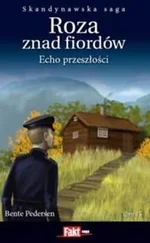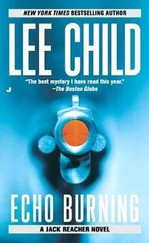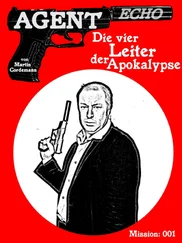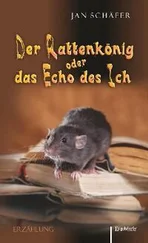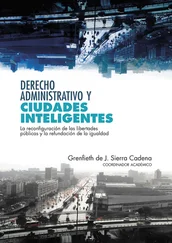I woke with a start over the wheel. I was dozing, which was dangerous. Where was my father? Was he still grieving and remembering below, wreathed in old tunes and bitter tobacco smoke? I engaged the auto-steer. I was desperate for sleep, close to hallucinating with tiredness. What had awoken me? Of all things, I had been brought back to full alertness by what had sounded like a baby crying. It must have been a gull, I thought. But the sky when I glanced about was empty. And there were no gulls perched on the rail or the rigging of the boat. Below deck, I paused outside my father’s cabin door. He was talking to himself again. It sounded like a grim and antagonistic monologue. His tone lacked any tenderness. He was no longer communicating, I thought, with his lost, precious daughter. I was beyond tired. I limped to my cabin. My mind engaged in a numb debate over which was more disturbing – the howl of a phantom dog or the crying of a ghostly baby. It was the baby, I decided. It was the distressed, invisible child. I was no great lover of dogs, and I thought the crying baby might be my little sister, conjured back to be among us. It was a sinister and disturbing thought. I wrestled my way out of my clothes and took to my berth and oblivion.
Nine
She arrived in Southport at four in the afternoon of the following day. She left the apocalyptic weather in the wake of the express as it rattled south-west across the country. By mid-morning there were fields golden with wheat and vivid with rapeseed to remind her again that it was June. She had to change twice. Southport was not the resort it had been in Victorian times, when trains full of excursionists in their masses made the summer rail journey faithfully there each holiday from Scotland or the Lancashire and Yorkshire mill towns and the Black Country of the Midlands. Nor was it the gaudy seaside tribute to wealth it had been in the 1920s. The great Art Deco outdoor pool had gone now, replaced by a windblown retail park full of discount names. The grand, and some said haunted, Palace Hotel was long demolished. Even Lord Street, the great tree-lined boulevard of exclusive shops, was in decline. Panes were missing from many of the cast-iron pillared awnings that covered the pavement for most of a mile. And there were security guards outside a couple of the splashier jeweller’s shops.
Suzanne knew all this before seeing the evidence herself. She had been able to print off information about Southport in her guest quarters at the seminary. The most openly critical assessments of the town’s aesthetic and economic decline had come from its own tourism department. The town had been beautifully planned and maintained and then systematically vandalised from the early 1970s onwards, when Southport ceased to be an independent borough and came under the authority of Sefton Metropolitan Council. Sefton’s rule seemed to be typified by spite, envy, indifference and greed. If ever there was a goose to lay a golden egg, in Southport, Sefton killed it. The first big decision was symptomatic of what followed. Southport’s buses, attired in a splendid yellow and red livery and proudly adorned with the town’s crest, were painted over in Sefton’s drab, utilitarian green. It was the imposition of a grim visual austerity entirely out of keeping with the gaiety visitors expected. Subsequent decisions were just as crass and much more damaging. Sefton’s decision to sell sand from the beach to the building trade had destroyed the dunes on which generations of families had picnicked and played. The yellow, rolling hills of sand had vanished from the end of Weld Road in Birkdale, all the way south to the nature reserve at Formby. Sefton had been obliged to leave the nature reserve intact. That was Formby’s reprieve. Southport had not been treated so mercifully.
But the Southport Harry Spalding had known had been a splendid place; handsome, sun-drenched and dedicated to pleasure. It was a cut above Blackpool and Morecambe to the north, and knew it. There were casinos and luxury cinemas and theatres and concert halls. There was marble and terrazzo and parquet and there was money. The thoroughbreds ridden at Aintree were trained on the shore. Birkdale was considered the best links golf course in the whole of England. The Giroud brothers ran their aviation club on a hard, smooth strip between the sand hills and the sea. Star entertainers were lured in the season to the Floral Hall and the summer flower show held in Victoria Park was at least the rival of the show held annually at Chelsea. Then, Lord Street had boasted an array of shops to compete with anything in Paris or Milan.
Suzanne walked through the station approach to Chapel Street. She had booked her accommodation the previous evening by email, after choosing a small private hotel in Birkdale that had looked nice without being massively overpriced. The fact that she had found somewhere so easily was indicative, she supposed, of the decline of the resort. Once its hotels and guesthouses would have been full to capacity from the end of May until the beginning of September. But it was no longer the case. It was made plain in her reading that the town saw its future appeal more as a conference location than a place where people sought to spend a holiday.
She was aware that she was spending the BBC’s money on something that was nothing at all to do with the corporation. But in her five years there, she had seen a great deal of money squandered.
Chapel Street was pedestrianised. Late afternoon shoppers browsed the windows of generic stores or sipped coffee at the tables in Café Nero. A pair of middle-aged buskers stood with electric guitars in the middle of the street and played an old hit by Dire Straits. She felt a stab of disappointment. It wasn’t that the town looked any drearier than anywhere else did. It was just that she could have been anywhere in England. Then she sniffed and looked up at the sky. And she smelled ozone and salt on the fresh summer breeze from the sea and saw the shimmering, layered cobalt light that only skies on the coast possess when the sun is shining on them and reflecting back the sea.
Chapel Street ran parallel with Lord Street. Or rather, with part of Lord Street, which was much longer than Chapel Street. She walked through a covered arcade that connected the two and found herself on a wide avenue with high trees and fountains. To her left, she knew, she would find the town’s main library. And opposite the main entrance to the library, on the same stretch of wide pavement, she would find the Tourist Information Office. She hefted the single bag comprising her luggage. Unpacking her bag could wait. There were mysteries here to be solved.
But she solved none of those mysteries on her first visit to Southport’s main public library. The Atkinson Library was situated in a grand building paid for by the philanthropist after whom it was named. Other parts of the building housed an arts centre and the Atkinson Art Gallery. In Spalding’s era, the arts centre had been a theatre given to glittering premiers and productions hailed for their extravagance. But Suzanne was aware that she lived in a more practical age. And the reference library there was excellent, she discovered, once she had completed the formality of taking out a temporary membership. There was a rich and vivid archive charting the history and development of the town. There was lots of information on the great maritime disaster that occurred when the crew of the Southport lifeboat went to the aid of the stricken vessel Mexico . There was nothing whatsoever in the library about Jane Boyte.
After an hour and a half of searching without result, Suzanne decided that she would go for coffee. She crossed the road from the library to the west side of Lord Street, where the shops were arrayed, then turned right and after a block came to a Costa coffee house. Costa roasted their beans at a plant in Old Paradise Street, around the corner from the Lambeth flat she shared with Martin. When the wind was blowing in the right direction, it was a familiar, homely smell. She was a fair way from home. When she ordered her drink, there was even a photograph of the Old Paradise Street street sign in sepia as part of a montage on the wall. And, of course, that was fondly familiar, too. But as the June shadows began their slow lengthening towards dusk, she felt a very long way from home indeed.
Читать дальше



